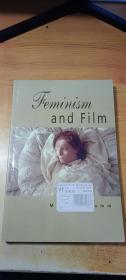
Molecular Feminisms: Biology, Becomings, and Life in the Lab
¥ 249 九品
仅1件
作者Deboleena Roy
出版社University of Washington Press
ISBN9780295744100
出版时间2018-10
印刷时间2018-10
装帧平装
页数282页
上书时间2021-10-21
- 最新上架
商品详情
- 品相描述:九品
- 商品描述
-
Open access edition: DOI 10.6069/j163-3c90
"Should feminists clone?" "What do neurons think about?" "How can we learn from bacterial writing?" These and other provocative questions have long preoccupied neuroscientist, molecular biologist, and intrepid feminist theorist Deboleena Roy, who takes seriously the capabilities of lab "objects"―bacteria and other human, nonhuman, organic, and inorganic actants―in order to understand processes of becoming.
In Molecular Feminisms, Roy investigates science as feminism at the lab bench, engaging in an interdisciplinary conversation between molecular biology, Deleuzian philosophies, posthumanism, and postcolonial and decolonial studies. She brings insights from feminist theory together with lessons learned from bacteria, subcloning, and synthetic biology, arguing that renewed interest in matter and materiality must be accompanied by a feminist rethinking of scientific research methods and techniques.
The open access edition of Molecular Feminisms is available thanks to a TOME grant from Emory University, with funding from the Andrew W. Mellon Foundation.
feminists clone?””神经元在想什么?””我们如何从细菌的书写中学习?”这些以及其他具有挑衅性的问题长期困扰着神经科学家、分子生物学家,以及勇敢的女权主义理论家迪波琳娜 · 罗伊,她认真对待实验室“实物”——细菌和其他人类、非人类、有机和无机物——以便理解生命形成的过程。在分子女性主义中,罗伊作为女权主义者在实验室研究科学,参与分子生物学、德勒齐安哲学、后人类主义、殖民地和非殖民地研究之间的跨学科。她将女权主义理论的见解与从细菌、亚克隆和合成生物学中学到的经验教训结合起来,认为对物质和物质性的新兴趣必须伴随着女权主义者对科学研究方法和技术的重新思考。分子女性主义的开放存取版本得益于艾默理大学的大部头资助,并得到了安德鲁·W·梅隆基金会的资助。
基本信息
出版社 : University of Washington Press (2018年10月22日)
语言 : 英语
平装 : 282页
ISBN-10 : 0295744103
ISBN-13 : 978-0295744100
商品重量 : 431 g
尺寸 : 15.24 x 1.63 x 22.86 cm
相关推荐
-

POLITICS Feminism
九品北京
¥ 60.00
-

PROFESSING FEMINISM
八五品上海
¥ 209.80
-

Feminism And Materialism
八五品衡水
¥ 250.00
-

Feminism And Film
九品北京
¥ 150.00
-

Feminism and Politics
九品上海
¥ 230.00
-

motherhood and feminism
九品北京
¥ 145.00
-

Feminism beginners guide
八五品广州
¥ 259.00
-

FULL FRONTAL FEMINISM
九品南京
¥ 60.00
-

REBIRTH OF FEMINISM
九品郑州
¥ 60.00
-

BETWEEN FEMINISM AND PSYCHOANALYSIS
九品上海
¥ 390.80
— 没有更多了 —
















以下为对购买帮助不大的评价